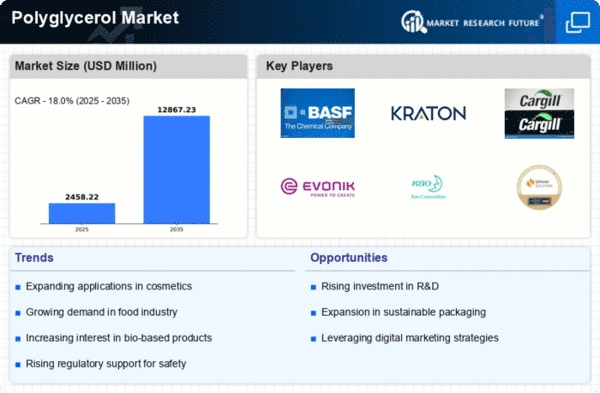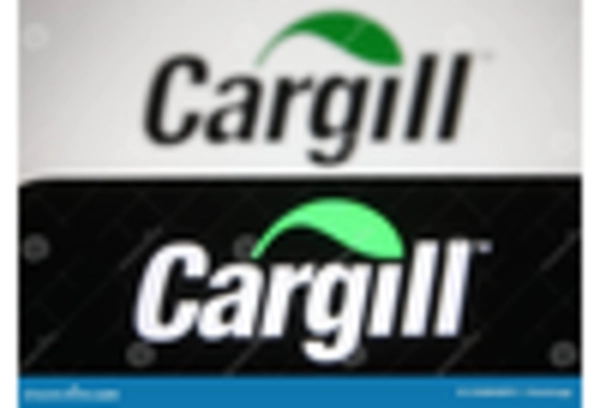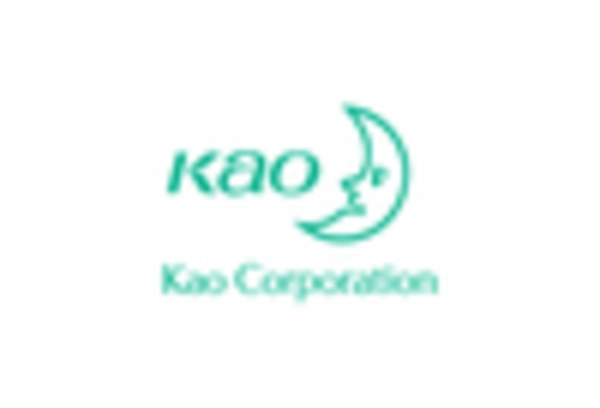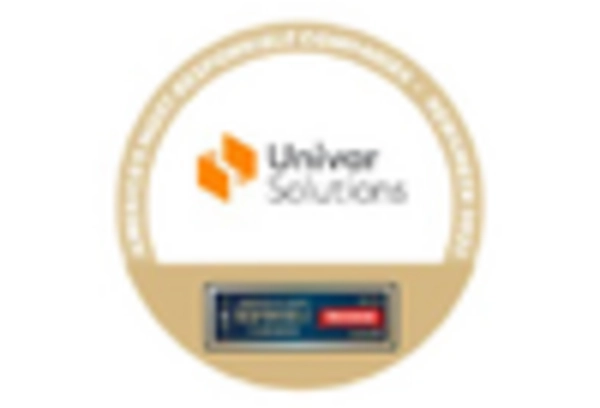Market Share
Polyglycerol Market Share Analysis
Product Development and Differentiation: • Organizations in the Polyglycerol market center around persistent item advancement to separate themselves. Creating novel polyglycerol plans with further developed functionalities and applications permits organizations to hang out in a packed market, drawing in clients looking for cutting edge arrangements. Altered Answers for Different Enterprises: • To extend piece of the pie, organizations offer modified polyglycerol arrangements custom-made to the requirements of various enterprises. Giving varieties in sub-atomic weight, immaculateness, and compound creation permits producers to address different applications in areas like beauty care products, food, drugs, from there, the sky is the limit. Worldwide Market Extension: • There is a global market for polyglycerol, and businesses look for ways to expand globally. Laying out areas of strength for a presence through organizations, acquisitions, and viable dispersion networks empowers organizations to take advantage of new business sectors and increment their general portion of the overall industry. Compliance with regulations and quality assurance: • The most important things are strict measures for quality assurance and compliance with regulations. To guarantee the consistency and purity of their polyglycerol products, businesses make investments in quality control procedures. Meeting administrative necessities upgrades entrust with clients and builds up market situating. Maintainability Practices: • Because of developing natural worries, organizations in the Polyglycerol market embrace maintainable practices. Creating eco-accommodating creation strategies and advancing the utilization of bio-based or inexhaustible polyglycerol choices lines up with market patterns, drawing in naturally cognizant shoppers and emphatically affecting piece of the pie. Partnerships and Strategic Partnerships: • Building vital coalitions with central members in different businesses is a typical technique. Polyglycerol makers can flawlessly coordinate their items into existing stock chains by teaming up with producers in private consideration, food, and drugs. This fosters mutual growth and increases market share. Instructive Missions and Preparing Projects: • Polyglycerol's potential applications and benefits may not be fully appreciated by many end users. Organizations start instructive missions and preparing projects to bring issues to light about the flexibility of polyglycerol, showing its part in upgrading item execution and meeting industry prerequisites. Cost Intensity: • Giving expense serious polyglycerol arrangements is fundamental for market situating. Organizations that upgrade creation processes, arrange great provider agreements, and proposition cutthroat valuing gain an upper hand, particularly in cost delicate businesses, adding to expanded piece of the pie. Reception of Cutting-edge Assembling Advancements: • Embracing progressed fabricating advancements upgrades proficiency and item quality. Modern production techniques, automation, and process optimization can help businesses increase their market share by scalability, cost reduction, and consistent quality. Responsive Client assistance: • Fantastic client service is a key differentiator. Organizations that give responsive and customized client support, including specialized help and item proposals, make a positive client experience. This encourages client dependability and rehash business, adding to supported portion of the overall industry. Computerized Promoting and Online Presence: • Keeping a strong online presence is essential in the digital age. Organizations that influence computerized showcasing techniques, including web-based entertainment, internet publicizing, and educational sites, upgrade their perceivability. This helps contact a more extensive crowd, create leads, and remain cutthroat in the advanced market scene. Market Knowledge and Anticipating: • Expecting market patterns and client needs is fundamental. Organizations that put resources into market knowledge, pattern investigation, and gauging can proactively change their systems to remain ahead. This versatility guarantees proceeded with importance and gets a critical portion of the Polyglycerol market.


















Leave a Comment